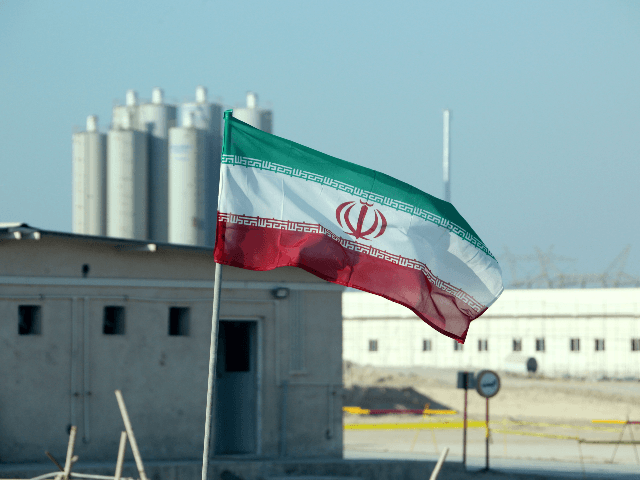The Iranian Foreign Ministry said on Monday that claims of nuclear deal violations from European participants in the Joint Comprehensive Plan of Action (JCPOA) are groundless and Tehran still respects the deal, despite having systematically abrogated most of its terms in an effort to squeeze more financial concessions out of the Europeans.
“Tehran still remains in the deal,” said Foreign Ministry spokesman Abbas Musavi on Monday. “The European powers’ claims about Iran violating the deal are unfounded.”
“Whether Iran will further decrease its nuclear commitments will depend on other parties and whether Iran’s interests are secured under the deal,” he added, somewhat undermining his point that Iran supposedly hasn’t violated the deal yet.
It is not easy to put a finger on which parts of the nuclear deal Iran is still officially obeying, never mind numerous allegations of secret cheating. In early January, Iran announced its fifth round of open and systemic violations, removing all limits on uranium enrichment. Two weeks later, President Hassan Rouhani claimed Iran was already enriching more uranium than it was before the deal was struck with former U.S. President Barack Obama.
Iran is banking heavily on the desire of the remaining participants in the nuclear deal to keep it alive despite blatant transgressions. The Iranians have flaunted their upper hand over the Europeans by claiming all of their violations were actually allowed by the JCPOA.
Last week, the Europeans tried to signal their patience with Iranian violations was coming to an end by threatening to trigger the JCPOA’s “dispute mechanism” and referring Iran to the U.N. Security Council for judgment. On Sunday, Iran pushed back by declaring it would withdraw from what remains of the JCPOA if Britain, France, and Germany follow through with the process they have initiated and take their case to the United Nations.
Iranian parliamentary speaker Ali Larijani on Sunday called the Europeans’ decision to invoke the dispute mechanism “unfortunate” and threatened to “make a serious decision regarding cooperation” with the International Atomic Energy Agency (IAEA) if the complaint to the United Nations is not withdrawn.
“The issue is not Iran’s behavior. It is America’s threats that have pushed a powerful European country to a humiliating and unjust position,” Larijani charged.
Rouhani upped the ante by threatening physical violence against European soldiers in the Middle East, warning that “tomorrow the European soldier could be in danger” just like American soldiers if the UK, France, and Germany attempt to punish Iran for violating the nuclear deal.
Iranian Foreign Minister Mohammad Javad Zarif raised the ante even further on Monday by stating that if the Europeans “continue their improper behavior or send Iran’s file to the Security Council,” Iran will withdraw not only from the JCPOA but from the Nuclear Non-proliferation Treaty (NPT) of 1968.
Zarif further implied that Iran still has some violation cards to play, even though his government has stated that removing the limits on uranium enrichment at the beginning of January was the final violation planned to apply pressure against the Europeans.
The Europeans appear to be backing down in the face of Iran’s threats. On Sunday, British Prime Minister Boris Johnson and French President Emmanuel Macron restated their commitment to the JCPOA while tepidly acknowledging “the need to define a long-term framework to prevent Iran acquiring a nuclear weapon,” as Johnson’s office put it.
“They agreed on the importance of de-escalation and of working with international partners to find a diplomatic way through the current tensions,” a Johnson spokeswoman said of his meeting with Macron.
Josep Borrell, the European Union’s chief diplomat, said last week that when the European powers invoked the JCPOA dispute mechanism, their goal was not to restore sanctions against Iran but rather to “find a solution for the return to full compliance.”
Johnson had previously indicated agreement with President Trump’s idea to negotiate a better deal with Iran, but his statement over the weekend suggested France and Germany have persuaded him not to give up on the JCPOA just yet.
Some observers believe the JCPOA effectively died when France, Germany, and the UK (collectively known as the E3) invoked the dispute resolution mechanism since it was a tacit acknowledgment of Iran’s violations and the end of soft diplomatic efforts to persuade them to fall back in line. This diagnosis was reinforced last week when it looked as if Johnson would break away from the E3 and adopt Trump’s position on negotiating a new deal.
The problem with that analysis was assuming a humiliating climbdown by the E3 was unthinkable in the face of naked Iranian aggression, blatant threats, and Iran’s ongoing effort to blackmail the E3 into tremendous economic concessions that would offset the “maximum pressure” of Trump’s sanctions.
Few analysts seem to have accounted for the possibility that Iran’s murderous belligerence might actually work and bully the E3 into keeping the deal alive at all costs to avoid adding a perceived “nuclear proliferation crisis” to the dangerously unstable situation Iran has created in the Middle East.
A great deal of money is on the line for European businesses, and the E3 does not want Iran to launch terrorist attacks on its people that would force it to respond – as Iran did with the United States by using its Iraqi militia proxies to launch a deadly missile attack on American positions and attack the U.S. embassy in Baghdad.

COMMENTS
Please let us know if you're having issues with commenting.